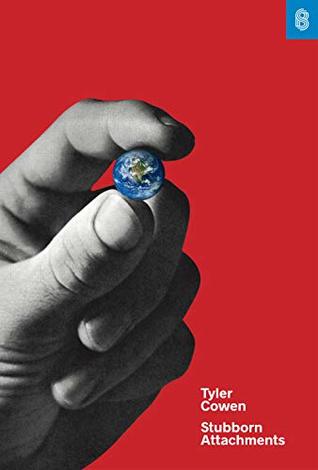More on this book
Community
Kindle Notes & Highlights
by
Tyler Cowen
Read between
October 20, 2018 - March 17, 2019
Life is complicated! That means no single value is a trump card which overwhelms all other values in all instances, and thus there is a fundamental messiness to the nature of the good. A recognition of this messiness may at first seem inconsistent with an attachment to rigid ideals of prosperity and liberty; that reconciliation will be a central issue in this book.
In short, my philosophical starting points are: “Right” and “wrong” are very real concepts which should possess great force. We should be skeptical about the powers of the individual human mind. Human life is complex and offers many different goods, not just one value that trumps all others.
how can we use our epistemic modesty to make better choices?
First, I do not take the productive powers of economies for granted. Production could be much greater than it is today, and our lives could be more splendid. Or, if we make some big mistakes, production could be much lower, and we could all be much poorer. This simple observation allows us to put the idea of production at the center of our moral theory, because without production, value is problematic.
we should invest more in the future.
Enlightenment Now: The Case for Reason, Science, Humanism, and Progress.9
Benjamin M. Friedman, in his brilliant The Moral Consequences of Economic Growth,
Wealthier societies offer greater opportunities and freedoms to pursue preferred concepts of happiness, even if this privilege does not always show up in the measurement of a single, aggregate number.
future seems so distant and abstract. Many people cannot fully grasp that when the future comes, it will be as real as the present is right now.
For the most part, we’re actually fairly rational about time, except for this fixation on the “now” moment and the “very soon/right away” horizon.
So we may have an innate biological preference for the “now,” but we will do better if we can get past it, if we can tap into the part of ourselves that recognizes that a benefit in twenty years’ time is about as valuable as that same benefit in thirty years’ time.
If you are the kind of person who is inclined to seize the current benefit, you will do best if you can find a way to link these immediate rewards to a superior payoff in the future.


